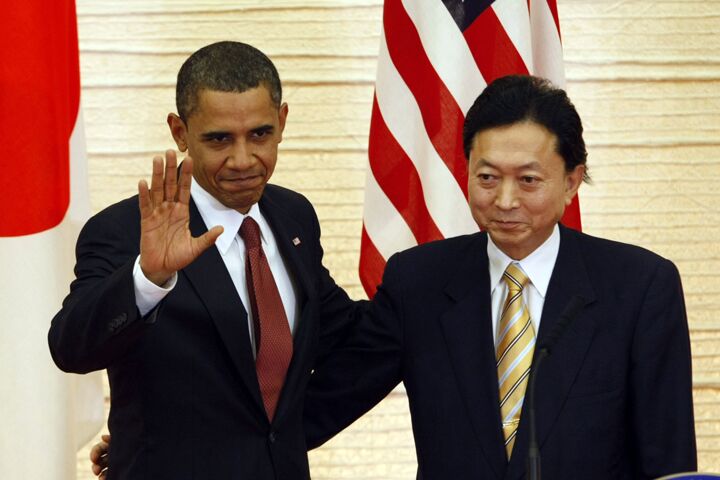
Is the U.S.-Japan Relationship Unraveling?
The historic military relationship between the United States and Japan may be breaking down over the U.S. base in Okinawa. Japan has suspended talks about the relocation of the Okinawa base as the new government fundamentally alters Japan’s relationship with the U.S.
When the Democratic Party of Japan (dpj) came to power in August it took over from a party that had ruled Japan almost uninterrupted for nearly 60 years. It promised to end to Japan’s “passive” behavior in dealing with the U.S. Yet government officials stated that Japan’s military relationship with the U.S. would not change.
But that relationship is starting to change. The presence of U.S. troops in Okinawa has long been a sore point in U.S.-Japanese relations. Most of the 36,000 U.S. troops in Japan are based in Okinawa. The residents complain that they bring crime, pollution and noise, and want them gone. In 2006, Japan and the U.S. agreed to move the military base to a more remote part of the island.
Now the U.S. is simply confused as to what Japan wants. At times the new Prime Minister Yukio Hatoyama has said that the base has to leave the island completely. Other times he has indicated that it can stay. The U.S. has been pushing for a quick decision, but Hatoyama does not seem to be cooperating.
Hatoyama is under a lot of pressure to kick the U.S. out. Mizuho Fukushima, the leader of his coalition partner, the Social Democratic Party (sdp), said that his party may quit the coalition if Japan allows the U.S. to stay in Okinawa. Without the sdp, Hatoyama loses his majority in Japan’s upper house, and would be unable to pass legislation.
Whatever Hatoyama decides on this specific issue, the dithering shows a clear change in the relationship between the U.S. and Japan.
“Domestic politics matter in Japan now in a way that they didn’t when you had a virtual one-party state for 50 years,” said Daniel Sneider, a Japan expert at Stanford University. “Do elections and domestic politics influence foreign policy in the United States? Of course. Now they do in Japan, too.”
The U.S. can no longer count on Japan’s unwavering support. Japan’s foreign policy is now free to shift depending on the direction the wind is blowing.
Japan used to be a pillar of American foreign policy in the Pacific. But now that is changing. Watch for the Japanese to edge the U.S. out of their country as they become more militarily powerful themselves. For more information, see chapter four, “Japan’s Place in the Future,” of our free booklet Russia and China in Prophecy.
